18 December 2024, Port Sudan, Sudan – The World Health Organization (WHO), with support from the European Union (EU), has installed 8 state-of-the-art zero-emission incinerators in hospitals in Northern, Red Sea, Gedaref, Blue Nile and River Nile states. Two incinerators destined for Blue Nile State will be installed as soon as access permits.
The incinerators, donated to Sudan’s Ministry of Health in May 2024, will transform medical waste management, and reduce the public health and environmental risks that arise from the improper disposal of medical waste.
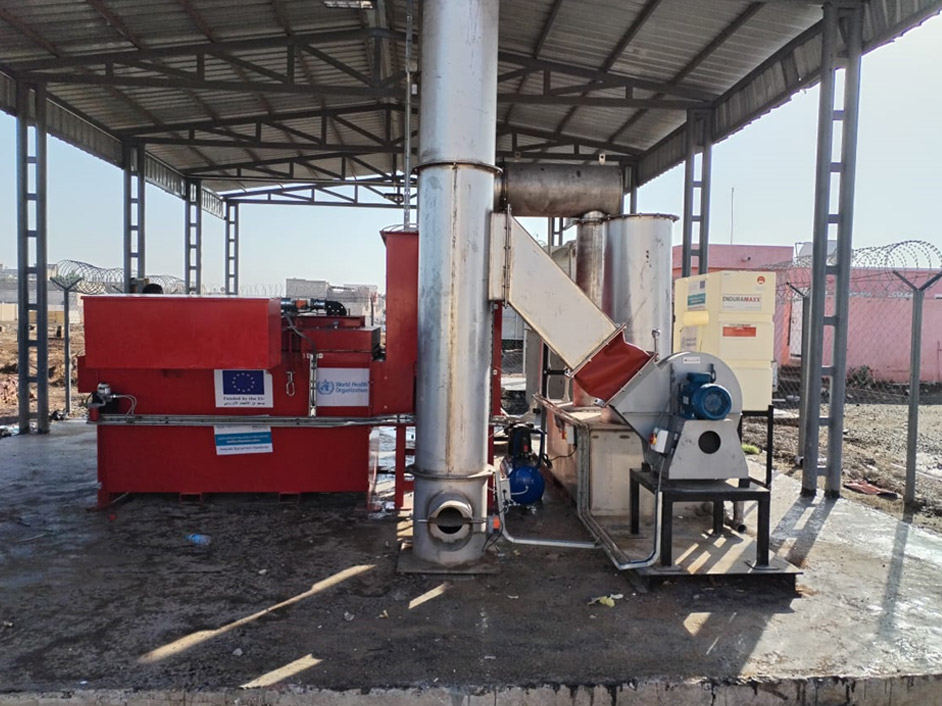
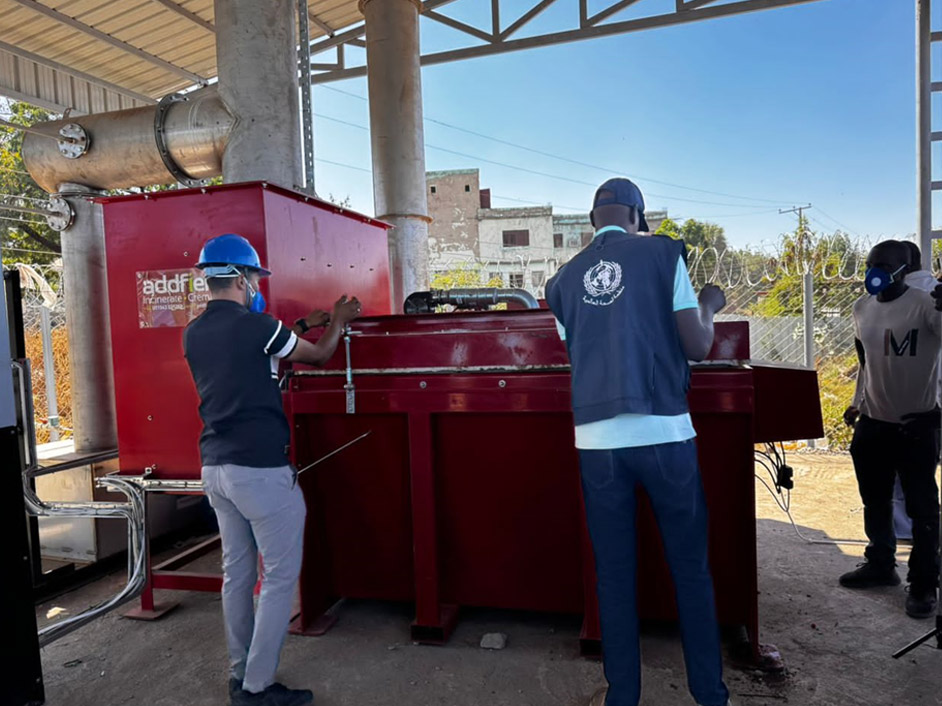
WHO is training incinerator operators on the use and maintenance of the units. Health care workers across the 5 states have also been trained on medical waste management. The training will improve waste management practices across the health care system, contributing to infection prevention and control at health facilities and helping ensure the long-term impact of the project.
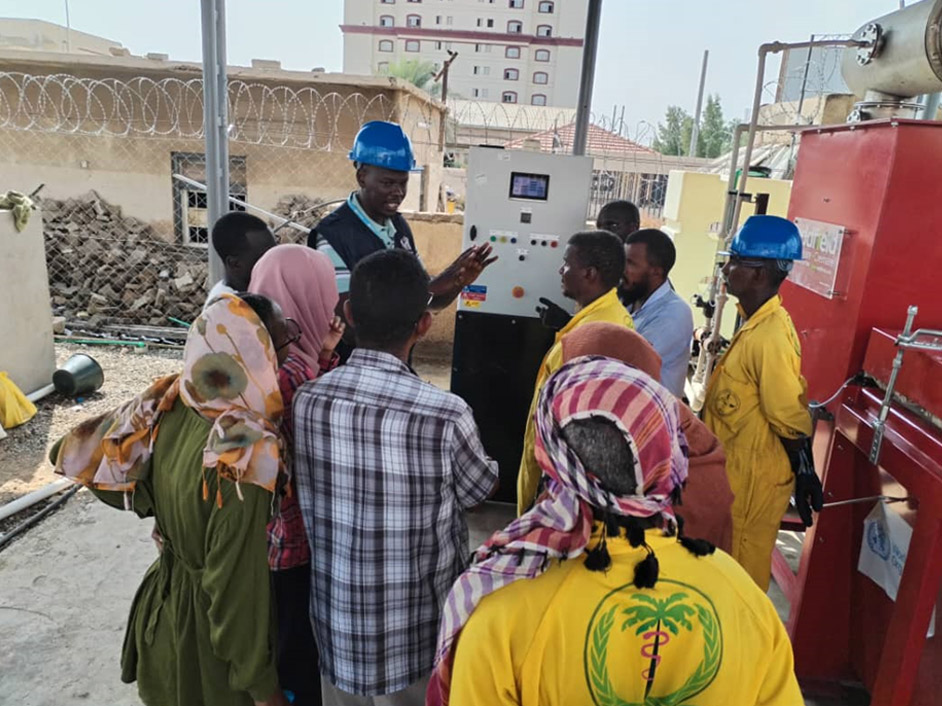
The challenge of medical waste management
Medical waste, ranging from used syringes and gloves to contaminated dressings, poses significant risks to human health and the environment. Improper disposal of such waste can result in water contamination, air and soil pollution and the spread of infectious diseases. In Sudan, where disease outbreaks are among the multiple challenges facing the health system, managing medical waste efficiently is crucial to safeguarding the public, patients, patient caretakers, and health care workers.;
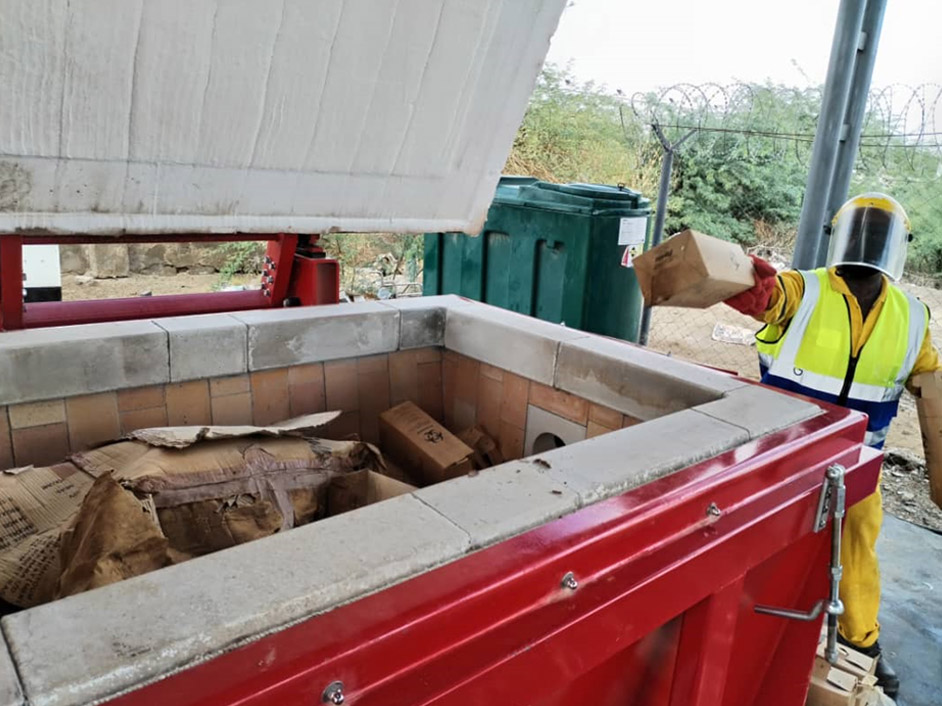
The solution: high-temperature incinerators
To address these concerns, WHO and the EU have provided modern incinerators for the safe disposal of medical waste. The incinerators use high temperatures to destroy pathogens and reduce waste volume, allowing harmful materials to be disposed of in an environmentally responsible manner.
By mitigating the immediate health risks posed by medical waste and contributing to environmental protection, the incinerators will help improve public health in Sudan.
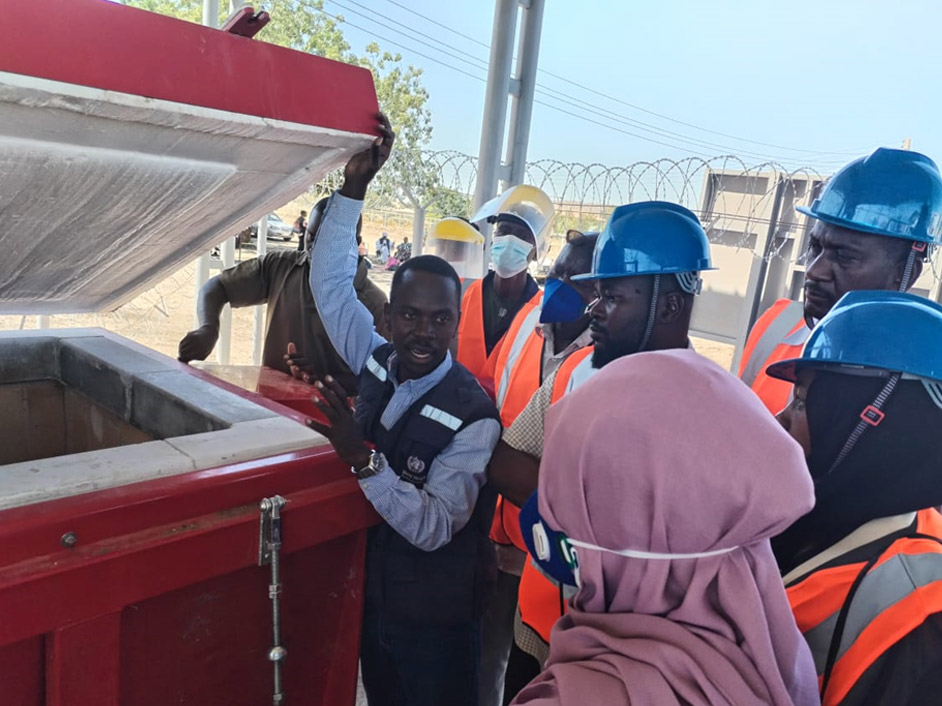
By mitigating the immediate health risks posed by medical waste and contributing to environmental protection, the incinerators will help improve public health in Sudan.
Towards a healthier future
The installation of the medical waste incinerators comes as part of broader WHO efforts to build a more resilient health system in Sudan and strengthen capacities to prevent and control the emergence and spread of infectious disease outbreaks. This is particularly critical at a time when the country is responding to multiple disease outbreaks while caught in the midst of a conflict that has raged for 20 months, engulfed several states and overstretched the health system.
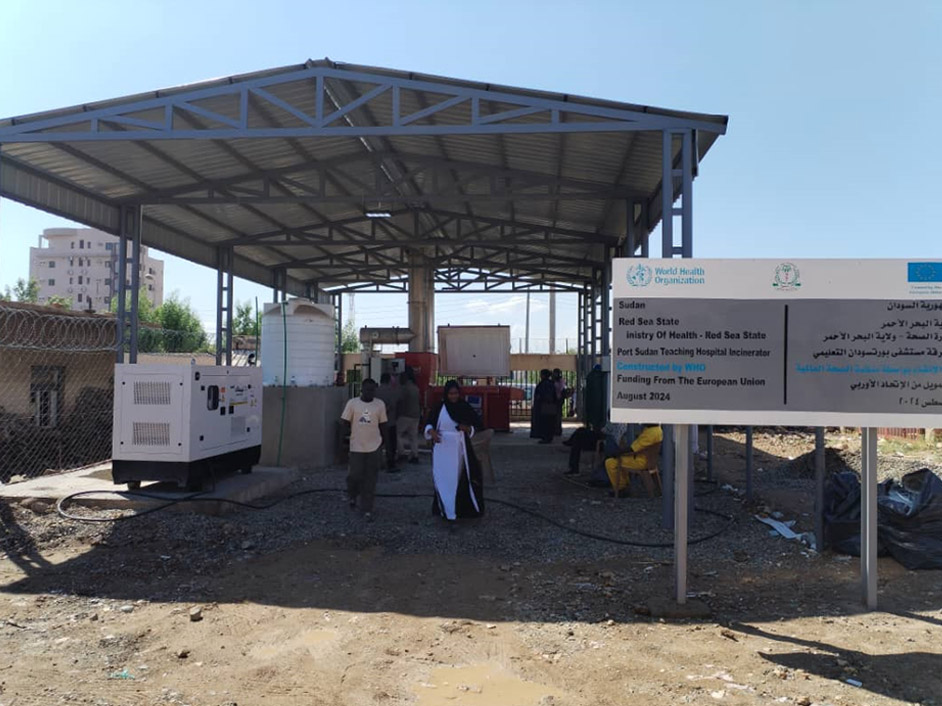
WHO is grateful to the EU for its commitment to improving the health of Sudan’s people by investing in sustainable and lasting solutions to infection prevention.
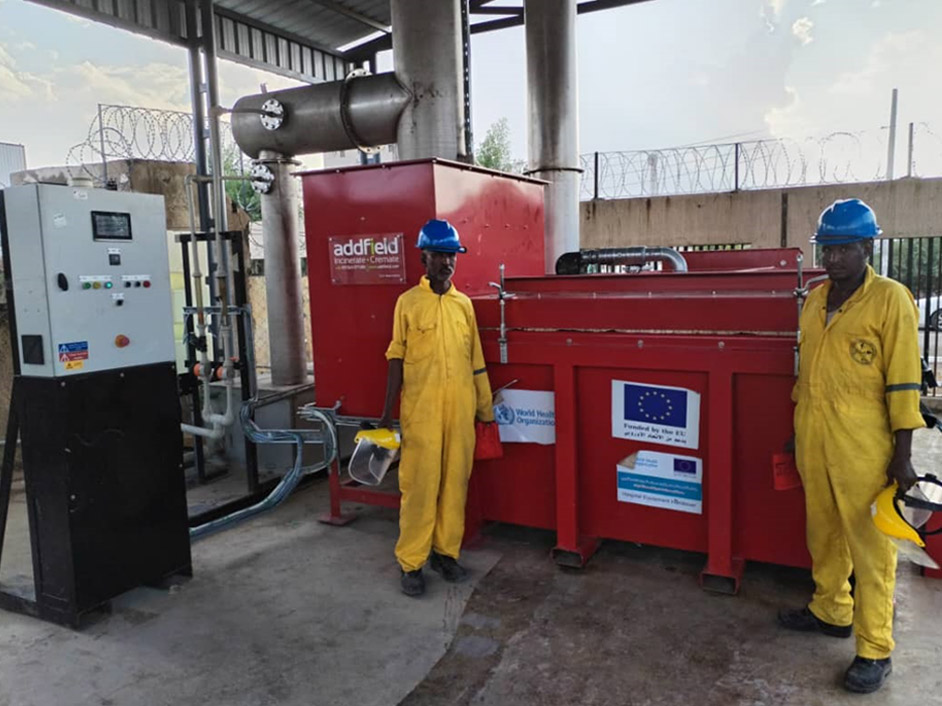
Learn more about the donation of the incinerators: https://www.emro.who.int/sdn/sudan-news/thanks-to-the-european-union-who-donates-medical-equipment-to-sudans-health-system.html


